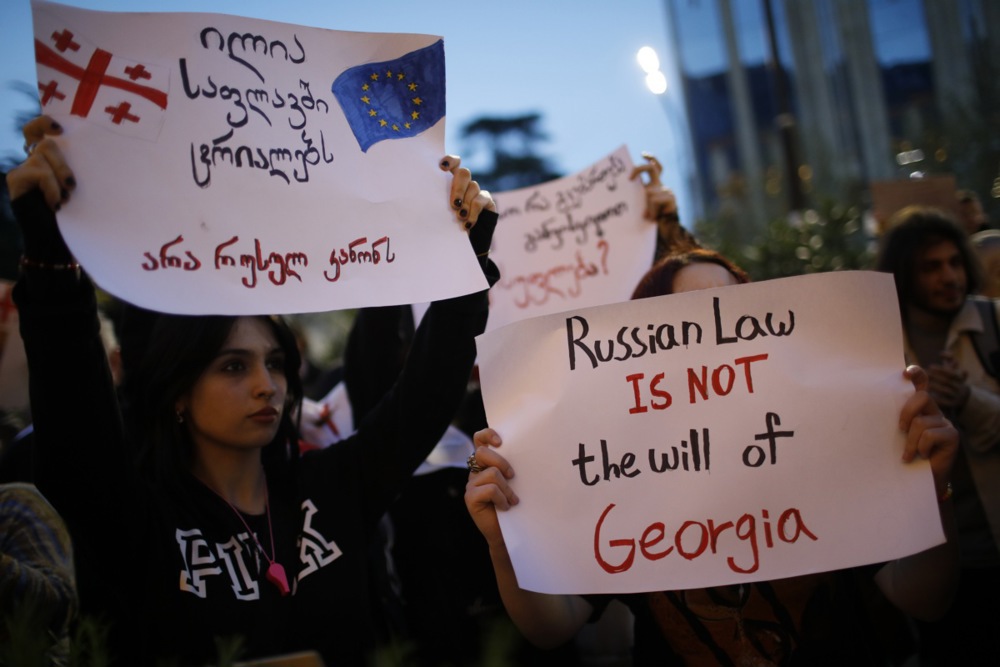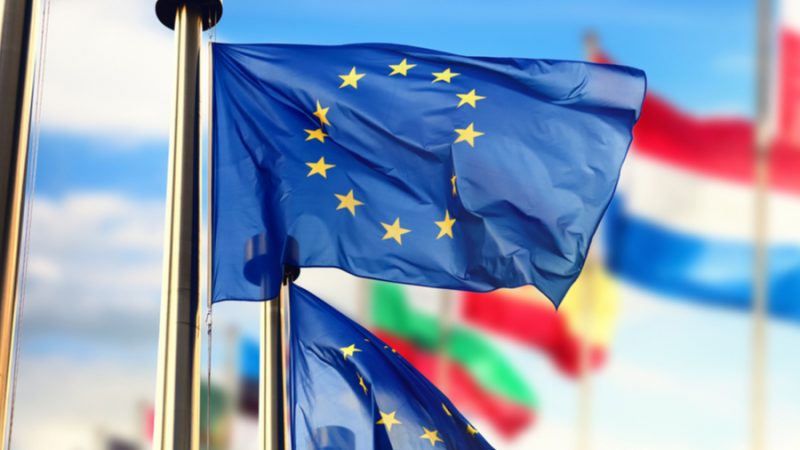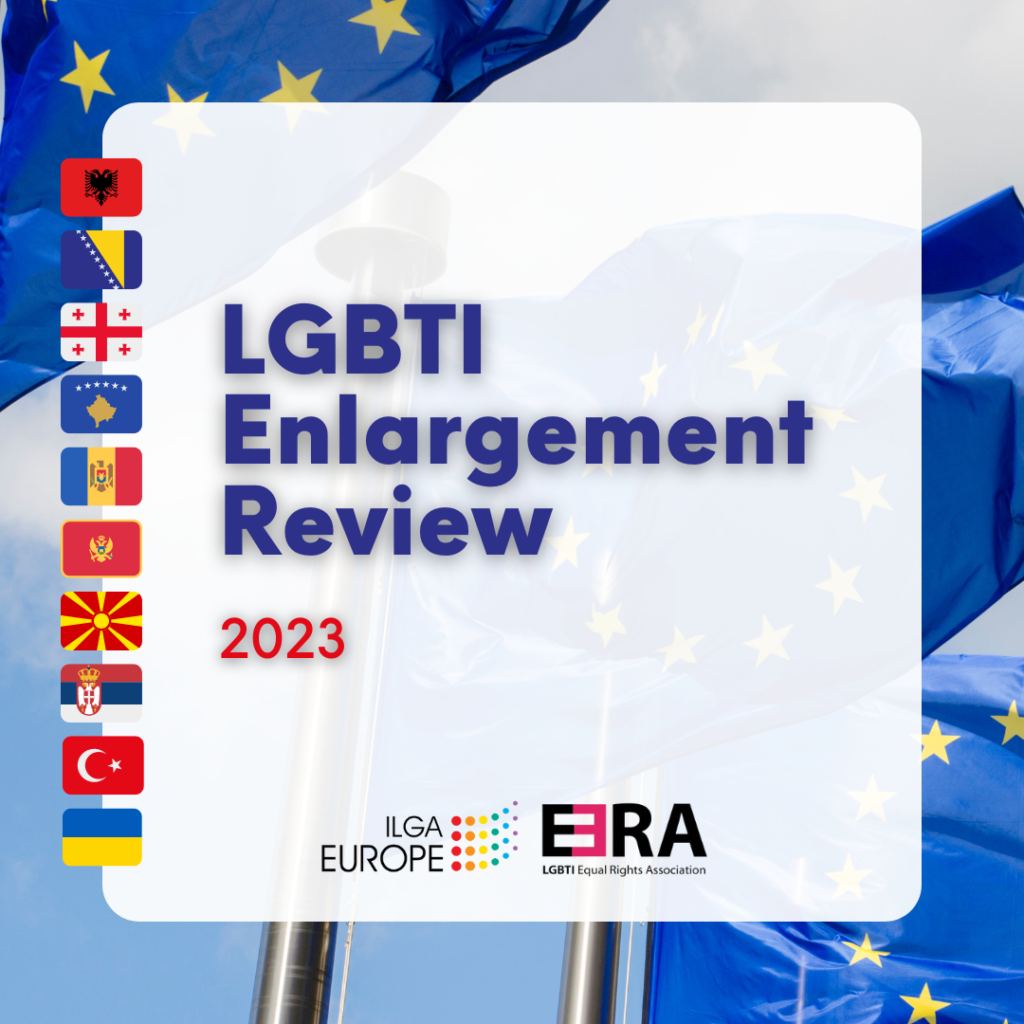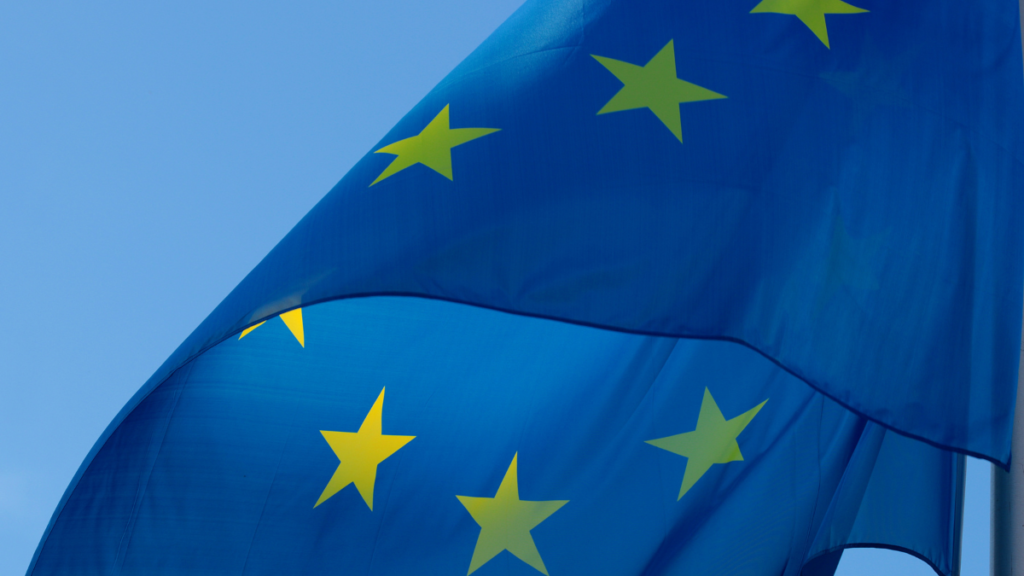Georgia
Categories Score
The full bar chart stands for 100%, and is filled by the country category score. The colour display uses the traffic light palette, with Green representing a score closer to 100% and Red a score closer to 0%.
ASYLUM
This category looks into laws that expressly include SOGISC as a qualification criteria for seeking asylum. We also take into account other legislation, policies, instruction or positive measures by state actors that are related to asylum addressing the needs and rights of LGBTI asylum seekers and refugees.
Criteria Compliance Ratio
Each pie charts stands for a category and is divided in slices by criteria. When a country complies with a criteria – fully or in some regions – the slice is coloured.
Keep in mind the criteria have different weighting factor within a category; for example, the criteria Prohibition of medical intervention without informed consent (intersex) stands for half (2.5%) of the INTERSEX BODILY INTEGRITY category weighting factor (5%). Meaning that even if a country can only comply with this specific criteria within the category (1/4 total criteria) the category scores 50%.
More information on the categories and criteria weighting factors here.
Category & Criteria Table
The table lists detailed information and insights on legislation supporting each criterion status. Please use the filters for in-depth analysis.
n/a = not applicable, meaning the criteria didn’t exist in the previous Rainbow Map edition (PROGRESSION column)
- Complies
- Applicable in some regions only
- Does not Comply
RECOMMENDATIONS
In order to improve the legal and policy situation of LGBTI people in Georgia, ILGA-Europe recommend:
- Adopting equality action plans that explicitly include all SOGIESC (sexual orientation, gender identity, gender expression, sex characteristics) grounds, accompanied by specific measures of progress.
- Adopting a fair, transparent legal framework for legal gender recognition based on a process of self-determination and free from abusive requirements (such as sterilisation, GID/medical diagnosis, surgical/medical intervention, compulsory divorce or age restriction) and securing access to healthcare for trans people.
- Removing obstacles to the effective exercise of freedom of assembly for LGBTI public events, and ensuring state protection and the safety of the events.
Annual Review of Georgia
In our Annual Review of the Human Rights Situation of LGBTI People in Europe and Central Asia, we examine the advances made and provide concrete examples of on-the-ground situations at national level country-by-country in the 12 months from January to December 2024.
Read our Annual Review of Georgia below for more details and stories behind the Rainbow Map. You can also download the Annual Review chapter (.pdf) covering Georgia.
-
The foreign agents law endangers provision of services to the LGBTI community in Georgia. At the time of writing, none of the LGBTI community organisations have registered as foreign agents, in protest of the law. Therefore, organisations could be fined and might have to file for bankruptcy, which would disrupt the available services. Additionally, the anti-LGBTI law has led to the erosion of trust and safety needed for the LGBTI community to seek out services. Thus, there is a decrease in applications for services, despite the need possibly increasing.
(See also under Equality and Non-discrimination and Freedom of Association)
-
Georgian LGBTI people continued to flee the country in large numbers. Although there are no official statistics, community organisations report that these numbers have significantly increased. However, there is an ongoing concern that Georgia is classified by some EU countries as a ‘safe country’.
Following the adoption of the foreign agents law and the anti- LGBTI law, a vast number of LGBTI people have been requesting assistance from Equality Movement’s lawyers in obtaining relevant documentation from the Ministry of Internal Affairs and the General Prosecutors Office of Georgia. The documents were obtained for the purpose of seeking asylum in other countries. This trend demonstrates that recent anti-democratic developments in Georgia have markedly accelerated LGBTI migration.
(See also under Equality and Non-discrimination, and Freedom of Association.)
-
The spread of misinformation and rhetoric demonising the LGBTI community and instrumentalisation of anti-LGBT propaganda to distance Georgia from the West continued this year. Anti-gender rhetoric also increased this year. In a keynote speech at the ultra-conservative CPAC conference, Irakli Kobakhidze compared liberals to Bolsheviks and said liberals fight Christianity and national identity with “LGBT propaganda”. His speech was full of homophobic and transphobic narratives that liberals are against using terms such as “mother” and “father”, or “man” and “woman”.
The Georgian Elections Observatory (GEO), focusing on fact- checking pre-election narratives, analysed statements made by high-ranking members of the ruling Georgian Dream party. The analysis revealed that ‘LGBT propaganda’ was framed as being imposed by Western influences and was linked to the perceived threat of national extinction.
In March, the Charter of Journalistic Ethics investigated anti- LGBTI content aired by a national TV channel. The Charter determined that the network violated multiple ethical principles of journalistic ethics by broadcasting biased and one-sided ‘expert’ opinions to support the government’s stance on LGBTI issues.
-
Just one day after the Parliament of Georgia passed the anti- LGBTI law, a celebrity trans woman, Kesaria Abramidze was found brutally murdered in her apartment. The subsequent investigation pertains to premeditated murder with aggravating circumstances of special cruelty based on gender identity.
In October, a month after Kesaria’s murder, renowned trans activist Nata Talikishvili was physically attacked with a brick, resulting in a concussion. Nata Talikishvili is a recipient of Kato Mikeladze’s Prize, which is given for defending women’s rights.
In the spring of 2024, Tbilisi Pride office was vandalised twice by unidentified persons likely having ties with the Georgian Dream. The attackers threw eggs and left homophobic slurs written in red paint.
-
The anti-LGBTI law restricts education on gender and sexuality by prohibiting information that promotes same-sex relationships, gender transitioning, or non-heterosexual identities in educational institutions. The Venice Commission has condemned this provision as discriminatory, warning that it creates an unsafe environment for LGBTI students and deprives all pupils of comprehensive, age-appropriate sex education. The Commission also noted that the law contradicts the right to education and may increase bullying, harassment, and health risks.
(See also under Equality and Non-discrimination)
-
In March, Georgia’s ruling party unveiled a proposal for a bill named the “Protection of Family Values and Minors.” The law, widely referred to as the anti-LGBTI law by activists, encompasses a broad range of discriminatory provisions. By June, the Georgian Parliament granted preliminary approval to the draft legislation. The law came into force in December 2024 and includes measures that prohibit non-heterosexual people from adopting children, prevent LGBTI people from changing their gender marker on identification documents, outlaw public gatherings that promote same-sex relationships, and prohibit educational institutions from presenting what the government terms “LGBTI propaganda.” Additionally, the law bans legal gender recognition, criminalises medical procedures related to transitioning, equates same-sex relationships with incest, and declares May 17 a “Day of Family Purity and Respect for Parents”, a holiday opposing the International Day Against Homophobia, Biphobia, Intersexphobia, and Transphobia (IDAHOBIT). In addition, the law exempts labour relations from anti-discrimination obligations to avoid terminology referring to ‘’biological sex’’.
-
Previously, there was no legal recognition for same-sex couples living together, and the anti-LGBTI law further excludes individuals who have undergone gender transition from any recognition in the context of marriage.
The law also prohibits the adoption or foster care of minors by unmarried couples or single LGBTI people, allowing this only for married heterosexual couples or single heterosexual people. (See also under Equality and Non-discrimination.)
-
Georgia’s foreign policy took a dramatic turn away from the West, culminating on November 28, when PM Irakli Kobakhidze announced a halt to Georgia’s European integration process. All key strategic partners repeatedly expressed grave concern over the actions of the Georgian Dream party, which were contrary to the values and principles on which the European Union is based.
According to the enlargement report published by the European Commission, the rate of compatibility of Georgia with the common foreign and security policy of the European Union
was significantly low, at 49%. Bidzina Ivanishvili, from the Georgian Dream party, was sanctioned by the United States for “undermining the democratic and Euro-Atlantic future of Georgia for the benefit of the Russian Federation”. Josep Borrell, the High Representative of the EU for foreign affairs at the time, called on Georgian authorities to withdraw the anti-LGBT law, as it would “undermine the fundamental rights of the people and increase discrimination & and stigmitisation” and further derail the country from the EU integration path.
-
During mass protests against alleged election fraud and the halt to Georgia’s European integration, several protesters, including LGBTI people, were subjected to torture and cruel treatment. Police committed human rights violations, including unlawful force, torture, and the targeting of journalists. Detained protesters have testified to widespread abuse.
(See also under Police and Law Enforcement.)
-
The anti-LGBTI law severely restricts freedom of assembly, effectively outlawing public gatherings such as Pride and IDAHOT events. Before the adoption of the law, Tbilisi Pride had already decided not to hold any events in 2024 due to the increase in homophobic and transphobic speech and violence, promoted and coordinated by the government in the pre-election period.
(See also under Equality and Non-discrimination.)
-
In May, Georgia’s parliament passed the “Transparency of Foreign Influence” law, which requires organisations receiving over 20% of their funding from abroad to register as “organisations pursuing the interests of a foreign power.” While the law is widely known as the foreign agents law, the 2024 version removed the term “agent” and replaced it with the less controversial-sounding phrasing. The law compels civil society groups and independent media to submit their internal documents for government inspection.
Although Georgian authorities have not yet taken direct action against non-compliant organisations, methods of intimidation and harassment have been used, particularly ahead of the 26 October elections. These tactics included an attempt to block organisations from monitoring the elections, though this was reversed after international backlash.
In June 2024, the bill was signed into law by Speaker of Parliament Shalva Papuashvili , following the legislature’s rejection of a veto by President Salome Zourabichvili and the law began to be implemented. The deadline for registration under the law expired on September 2, with only 476 organisations expressing interest in complying, which is approximately 1.5% of all registered CSOs in Georgia. In November, the European Court of Human Rights (ECtHR) registered a case against the law. The passage of the law is part of a broader crackdown on democratic freedoms by the ruling Georgian Dream party, drawing inspiration from a similar foreign agent law introduced in Russia in 2012.
-
The anti-LGBTI law severely restricts freedom of expression by prohibiting the distribution of materials that promote same-sex relationships, gender transition, or non-heterosexual identities. The law’s vague definition of “popularisation” could encompass even the provision of factual information on gender identity and sexual orientation. This has raised concerns among artists, writers, and academics, who fear that their work will be severely limited due to censorship.
(See also under Equality and Non-discrimination.)
-
The anti-LGBTI law undermines Georgia’s efforts to end AIDS and combat other infectious diseases, posing a significant threat to public health. The United Nations Programme on HIV and AIDS (UNAIDS) has expressed deep concern, stating that the law exacerbates stigma and hinders LGBTI people’s access to essential health services.
The Women’s Initiatives Support Group (WISG) launched a study to assess the healthcare needs of trans people. The analysis of numerous individual cases revealed specific issues encountered by trans people in accessing healthcare services and the need for coordinated responses to tackle such shortcomings. Even before the anti-LGBTI law was enacted, there were cases when healthcare service providers practiced self-censorship and refused to provide services to trans people.
(See also under Equality and Non-discrimination.)
-
Following the enactment of the foreign agents law, a coalition of NGOs is preparing to challenge the law by filing a lawsuit with the Constitutional Court of Georgia. In addition, they plan to submit a complaint to the European Court of Human Rights, seeking to suspend its implementation.
(See also under Freedom of Association.)
-
The anti-LGBTI law has reversed any progress towards legal gender recognition. It particularly targets trans people, prohibiting both surgical and legal gender reassignment procedures, effectively denying them the right to change their gender marker on official documents.
(See also under Equality and Non-discrimination.)
-
In June, the Venice Commission declared the legislative proposal for the foreign agents bill non-compliant with European and international standards. The Commission’s review condemned the draft constitutional law as detrimental and unsatisfactory, asserting that it exacerbates prejudices and stereotypes against LGBTI people.
-
In October, the parliamentary elections in Georgia were marked by significant challenges, with international observers noting reports of voter intimidation, particularly in rural areas, and a significant imbalance in financial resources, with the ruling party enjoying significant advantages. The election sparked numerous protests across the country, driven by frustration over the government’s delay in EU accession negotiations and calling for a new parliamentary election, alongside chants against Russian influence. (See also under Freedom From Torture, Cruel, Inhuman, or Degrading Treatment, and under Police and Law Enforcement.)
-
The Georgian Dream party lawmakers appealed to the supposedly negative public opinion towards LGBTI people in segments of the Georgian society as a justification for adopting anti-LGBT law. However, the Venice Commission states that even if the majority was opposed to LGBTQI equality, this could not be invoked to justify discrimination and hate speech. In truth, there is no recent data to measure public opinion towards the anti- LGBT law or LGBTQI people. While the last decade has seen an increase in acceptance of LGBTQI people in Georgia, community organisations fear that the wide distribution of governmental homophobic and transphobic rhetoric could reverse the hard won progress. (See also under Equality and Non-discrimination.)
-
Following recent anti-democratic political developments in Georgia, trust in the police and investigative institutions among LGBTI people has significantly decreased, leading many to refrain from reporting incidents to the police.
In November and December, during mass protests against election fraud and the ruling party’s halt to Georgia’s European integration, police forces and special units carried out brutal arrests and beatings of civilians. Multiple reports state that homophobic language was used by law enforcement while arresting and assaulting the protesters. Additionally, Zviad Kharazishvili, head of the Special Tasks Department of the Ministry of Internal Affairs (MIA), reportedly publicly disseminated homophobic hate speech.
(See also under Freedom From Torture, Cruel, Inhuman, or Degrading Treatment.)
The full Annual Review for 2025 is available here.







